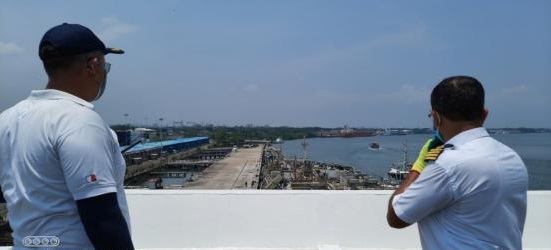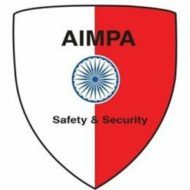Disclaimer
This page is for Information purposes only. We do not recruit Pilots or facilitate the same.
Basic Qualifications
“For initial entry, a valid certificate of competency as Master (FG) is the general rule. More specific rules are in accordance with those established by individual ports.”

Practical Tips

from Captain Sanjeev Pande, Senior Pilot.
Becoming a maritime pilot in India or at ports in certain other countries is (currently) mostly as follows:
You should love to handle ships.
Most persons who have realized for themselves that they love to handle ships, will last. Those who don’t know this about themselves, soon learn that pilotage is not meant for them. Wisely, they leave. Those who persist despite knowing they don’t enjoy ship-handling bring irritability, anxiety and nervousness all around – to the tugs, colleagues and of course to a ship’s bridge team.
You should have a certificate of competency as a Master (FG). Else Chief Mate (FG) with sufficient experience.
Command experience is not necessary, but a few years of it is preferred.
You will need to be reasonable fit and pass the port’s prescribed medical standards for pilots.
Those fit for seafaring are generally fit enough for piloting. But standards vary widely. Public sector ports and the larger private ports have well defined parameters. Other ports often not.
(Indian) public sector ports may recruit on a “regular employee” basis or on a “contractual” basis.
Regular employee basis is increasingly rare and involves complying with the UPSC’s (or State PSC’s) procedures. “Regular employees” have to be willing to relocate to the residence facilities provided by the port (quarters). For some, such quarters are the main attraction! Especially in the better port-cities like Mumbai, Chennai, Kochi, Vishakhapatnam and so on.
Most openings for pilots at other Indian ports allow working on a “rotation” basis. That is pilots, mostly in pairs, relieve each other at mutually agreed intervals. Ports abroad (e.g. in the middle-East) require re-location as “rotation” is expensive and disruptive.
Age at entry is generally less than 40 years for a person becoming a pilot for the first time.
Ports prefer to have pilots accumulate many years of experience in their own waters. This ensures that good work practices are established and which benefit from continuity. With an expected retirement age of 60 years (on average), a new pilot starting at 40 years of age will result in a pilot with 20 years’ experience for that port.
Such a pilot is a rare asset for any port. Such senior pilots form the bedrock of training and mentoring of new pilots be they raw recruits or transfers from other ports. Such pilots also assist ports to improve their pilotage procedures and policies.
The large public sector ports (“Major Ports”) and the larger private sector ports (abroad too) have quite comprehensive systems for recruitment and training. Recruitment of brand new pilots or those with prior experience at other ports. Is by notices in newspapers or professional websites and journals. It can take anything between 1 year to 3 years (or even more) to become a pilot authorized by the particular port to handle ships without any limitations to their size or draught or DWT or any other. The so called “full tonnage” or “unlimited tonnage” pilot. A very coveted endorsement indeed for a pilot.
Of course, most ports prefer to recruit persons with previous pilotage experience. Especially those with an “unlimited tonnage” endorsement on their license. Because this allows them to quickly fill up a gap or increase their bench strength without the need for a long drawn and expensive training program that too with the possibility that that person may change his mind and leave pilotage altogether after a few years.
If recently stepping ashore as a Master, accept the fact that the monthly take home will be a small fraction of what it was earlier. And, during the training period, it could be just a pittance! As a ballpark figure, expect to earn about Rs.2 lakh per month after achieving the “unlimited tonnage” endorsement by the port and having worked for 10 years there. At public sector ports, the salary may seem lesser compared to private ports, but they have certain perquisites provided “in kind” that are quite valuable in monetary terms.
Just as remuneration varies from port to port, so does the extent of liability compensation for accidental death or personal injury. It can be from the non-existent to the grossly inadequate. There is indeed a lot of scope for improvement on this aspect. So, you should consider buying sufficient insurance to cover yourself if you have not already done so!
As with any other major change in your career path, to get the first break into pilotage, you have to be at the right place at the right time. So, keep in contact with the pilots you come aboard your ship for tips and hints of possible openings and who to get in touch with to explore those tips. Word-of-mouth works best to give you “first mover” advantage.
Pilotage provides immense job satisfaction for those who love handling ships. And plenty of opportunity to spend quality time at home with the family. In the early years you may struggle. But after obtaining the “unlimited tonnage” endorsement, it is all quite good. For you are well settled and adjusted by then.
Fill in your details if you want to be a pilot
We do not recruit. This is for Information purposes only.
